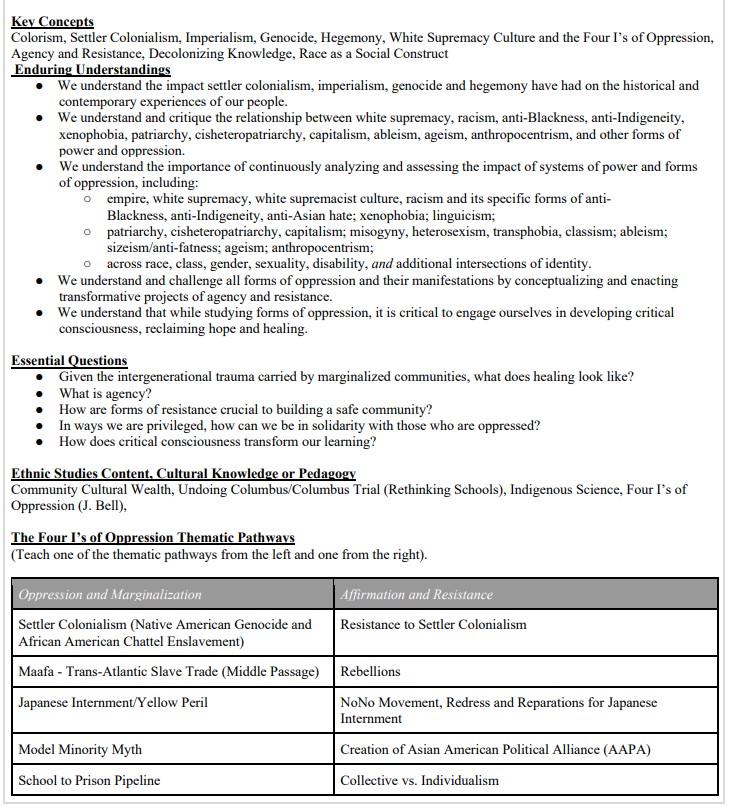
Los Angeles ethnic studies course teaches students to resist ‘white supremacy culture,’ empowers students to become ‘anti-racist leaders’
Incidents
The Los Angeles Unified School District’s ethnic studies website lists the course outline for “Introduction to Ethnic Studies,” which states that it “centers holistic humanization and critical consciousness,” and includes “the self-determination of those who have ancestral roots and knowledge who have resisted and survived settler colonialism, racism, white supremacy, cultural erasure, as well as other patterns, structures, and systems of marginalization and oppression.” The course document declares that ethnic studies uses pedagogical practices to “empower students to become anti-racist leaders.”
The course description explains that it will operate “from the consideration that race and racism, white supremacy, colonialism, settler colonialism, and intersectional marginalization have been, and continue to be, profoundly powerful social and cultural forces in American society.”
The document continues by stating that the major purpose of the course is to “educate students to be politically, socially, and economically conscious about their personal connections to local and national history.” The description also notes that the ethnic studies course will focus on social justice and social change.
The first unit of the course introduces ethnic studies and investigates “issues of identity.” It aims to help students develop a “critical consciousness” and “collective agency where student engagement in changing oppressive structures within schools as well as the community.”
Some key concepts featured in the course include “Racialized Intersectional Identity,” “Race as a Social Construct,” “Racial Consciousness,” “Colorism,” “White Supremacy Culture,” and “Decolonizing Knowledge.”
The mandatory one-semester course features “Enduring Understandings” such as learning about “racial microaggressions as well as how to respond to them,” being able to “articulate the meaning of indigeneity, colonization/white supremacy/white supremacy culture, community cultural wealth, intersectionality, and deficit theories” and understanding and critiquing “the relationship between white supremacy, racism, anti-Blackness, anti-Indigeneity, xenophobia, patriarchy, cisheteropatriarchy, capitalism, ableism, ageism, anthropocentrism, and other forms of power and oppression.”

The fifth and final unit of the course teaches students the “concepts of community and resistance,” appreciate the culture and history of “racialized communities,” while asking white students to “learn about their own histories of resisting white supremacy and/or racism.” The unit engages students in “transformative projects to reimagine a better world” requiring unity and organizing between “BIPOC and white allies.”
Stay Informed
